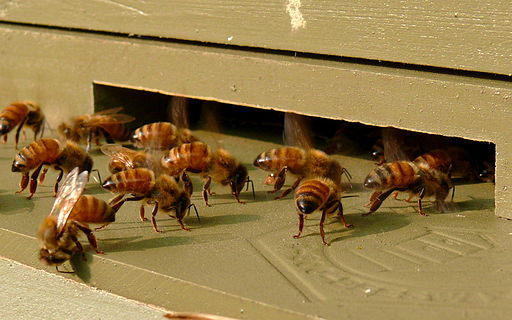 Two research studies have led to the findings that neonicotinoid, a pesticide that has been used since 1990, kills honeybees which are essential for pollinating food crops. Pollination of crops is the key determinant of the global food supply. Bees contribute to the food supply worth about 15 billion dollars. In fact, approximately 66 percent of food consumed is somehow connected to honeybees. Honeybees play a significant role in pollinating onions, corn, apples, lemons, almonds, cherries, broccoli, avocados, oranges, and many other fruits, flowers and vegetables.
Two research studies have led to the findings that neonicotinoid, a pesticide that has been used since 1990, kills honeybees which are essential for pollinating food crops. Pollination of crops is the key determinant of the global food supply. Bees contribute to the food supply worth about 15 billion dollars. In fact, approximately 66 percent of food consumed is somehow connected to honeybees. Honeybees play a significant role in pollinating onions, corn, apples, lemons, almonds, cherries, broccoli, avocados, oranges, and many other fruits, flowers and vegetables.
Neonicotinoid pesticide has greatly contributed to a decrease in the United States bee population. The production of queens has been reduced by 85 percent in beehives treated with neonicotinoid pesticides. The bees in the pesticide regions mainly die outside the hives, and it is believed that they lose their homing capability. More than 94 million acres of land is affected by the pesticide through seeds treated prior to planting. Even small quantities of the pesticide increase the susceptibility of bees to other diseases, which reduces their ability to home.
In the year 2012, the worst honey production was recorded because of the high death rates for honeybees. This decrease may result in a crisis in the almond industry of California. The loss of colonies of honeybees could negatively affect the period of almond pollination. This would consequently lead to the state’s economic loss, especially for almond growers. Another impact is felt by almond consumers who have to pay higher prices for the almonds. Eighty percent of the global almonds are supplied by California. Seventy-five percent of these almonds are shipped across the world. Neonicotinoid based pesticides are labeled with ingredients such as Thiamethoxam, Imidacloprid, Thiocloprid, and Abamectin.







Leave A Comment